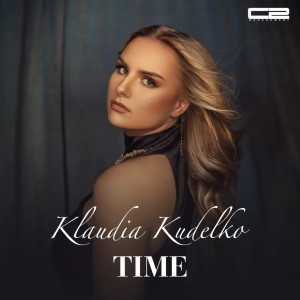
Time
Franz Schubert (1797-1828)
Moments Musicaux op. 94
Frederic Chopin (1810-1849)
Etude Op. 10 No.12 in C minor “Revolutionary”
Etude Op. 25 No.7 in C sharp minor
Polonaise-Fantasie Op. 61
Grażyna Bacewicz (1909-1969)
Piano Sonata No.2
Klaudia Kudelko (piano)
rec. Herbert Zipper Concert Hall, Los Angeles
Reviewed as a digital download from a press preview
C2 Management [69]
The heart of this debut recital from LA based Polish pianist, Klaudia Kudelko, lies in its least familiar work – Grażyna Bacewicz’ towering, coruscating second piano sonata. On the evidence of this performance, it suits Kudelko’s fiery nature perfectly. My point of comparison was Krystian Zimerman’s incandescent recording from 2011 on DG. What a performance that is! And that the much younger Pole can stand comparison with her great compatriot is testament to her fine musicianship.
I don’t propose to engage in the pointless task of establishing which is the better recording but to celebrate the qualities of both by contrasting them. Both seem to me ideal points of entry for anyone yet to discover the joys of Bacewicz’ music. Zimerman is more mercurial, Kudelko heavier and more unrelenting. This is music that seeks to marry traditional values – I hear Beethoven and Chopin in it – with a more progressive outlook attempting to respond to realities of life under communism. Kudelko’s humour is closer to the bitter sarcasm of a Shostakovich where Zimerman lets in more light and extravagant, near crazy energy. Only perhaps at the end of the wild ride of the finale’s Toccata does Kudelko seem a little too sober compared to Zimerman. Kudelko’s more earthy approach does fit better with the other pieces in what seemed to me initially to be a rather oddly matched programme.
There are quotes from the pianist concerning the album’s title but they left me largely unenlightened – apparently the pieces included retain the capacity to resonate with today’s audiences. I am sure this information will come as a great surprise to the readers of MusicWeb! I prefer to see the album as a three panelled portrait of a young pianist and as such it works very well.
A good place to get a feel for what is essential about Kudelko’s music making is her torrential take on that old chestnut, the Chopin Revolutionary Etude. Think Martha Argerich levels of combustibility and you will get a flavour of this side of Kudelko’s musical personality. (Better informed readers will correct me but I don’t think Argerich has ever recorded this particular warhorse). Other aspects of a fine sensibility at work in playing Chopin are to be found in a noble reading of the C sharp minor etude from the Op25 set and above all in a subtle, fantastic account of the elusive Polonaise-Fantasie. This latter work demands that the pianist finds a way to marry its many, often contradictory moods into a convincing whole and I found Kubelko’s solution eminently satisfying. She rages when she needs to, her transports of joy are, well, suitably transporting and her poetic melancholy affecting. She also manages to catch something of the sickly strangeness of the music most aptly.
The popularity of the Schubert Moments Musicaux at the expense of the roughly contemporaneous 3 Klavierstücke has always seemed strange to me. I presume it is down to the fact that superficially they are technically easier and hence more appealing to the amateur. Technically simpler but very difficult to pull off in the studio. Too many performances err too much on the side of seriousness and end up sounding a bit miserable if not bored. Kubelko is not immune to this tendency and I did wish that some more of the wildness in evidence elsewhere in the programme had found its way into her performance these pieces. This is very much bleak Schubert staring into the void rather than anything to be found in a Victorian drawing room. It did sound a bit like a younger artist trying to impress the listener with the earnestness of their musical character however beautifully it is played.
The piano sound on this recording is somewhat distinctive. There is quite a bit more resonance to it in contrast to the standard closeness on most classical piano recordings these days. It has been a while since I have heard a new piano record where the inhalations of the pianist are not clearly audible. My ear took a little while to adjust but by the end of the disc I found myself welcoming the warm glow it afforded the music.
This record reveals Kudelko as a sensitive and thoughtful pianist but I found her most interesting when she was storming the heavens or pulling them down around our ears as in the Bacewicz.
David McDade
Availability
Artist’s website

















